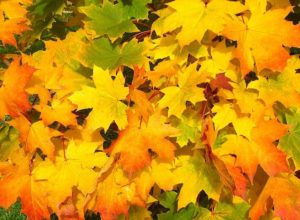Experiencing nature and the outdoors can be an important form of recreational therapy for children with autism. In light of the Covid-19 pandemic and the shift to online learning, many people are spending more time in nature than ever before. A healthy interest in the outdoors has been a hallmark of American childhood for generations. Your child with autism may benefit from the abundance of calming sights, sounds, and events to be experienced in nature. Below are a few tips for incorporating nature as a form of recreation therapy for your child with autism.

This fall, consider incorporating nature and the outdoors as a form of recreation therapy for your child with autism.
Bring the Outdoors Indoors
Although the outdoors provide an excellent place for sensory play, your child may find the outdoors to be overwhelming. They may not enjoy getting dirty, and you may not enjoy having to clean up after your dirty child. Not all seasons and climates are conducive to outdoor play, either. They should not play outside for extended periods of time during extreme heat, cold, or rain.
Fortunately, there are a number of ways you can help your child to experience the outdoors without going out of doors. Consider purchasing books concerning nature, such as field guides. Numerous vividly illustrated field guides of birds and wildflowers have been written for children. Your child may also enjoy CDs of bird calls. Even if you live in an urban area, consider setting up a bird feeder just outside your window. You might be surprised at what shows up. Incorporating house plants into your domestic space can also help your child learn about nature, even if the outdoors are inhospitable.
Organize Outdoor Activities
Although outdoors play does not have to be structured, some organization of activities may be advantageous. Numerous sensory activities lend themselves to the outdoors, such as drawing with sidewalk chalk and flying kites. If your child takes an interest in wild birds, you can help them maintain a “life list” of the species they have identified. In autumn, you can encourage them to gather pinecones and acorns for crafts. Properly dried, these relics of the outdoors will persist into the winter months.
The outdoors can facilitate sensory awareness, reduce stress, and pose a great opportunity for learning. As the weather gets colder, consider spending more time in nature with your child. It may be of benefit to you both.
The Connections Therapy Center
The Connections Therapy Center serves families of children and adolescents with disabilities and special needs. We are a team of experts in the fields of pediatric speech, occupational therapy, speech-language pathology, and behavioral sciences. As a team, we offer intensive hands-on therapy for children and adolescents, as well as informative and useful resources for families. If you are interested in learning more about what we can do to help your family, visit us online or give us a call at (202) 561-1110 (Washington, D.C. office) or (301) 577-4333 (Lanham office). Want to get more information on how to help your child thrive? Follow us on Facebook, Twitter, LinkedIn, Google+, and Pinterest.
